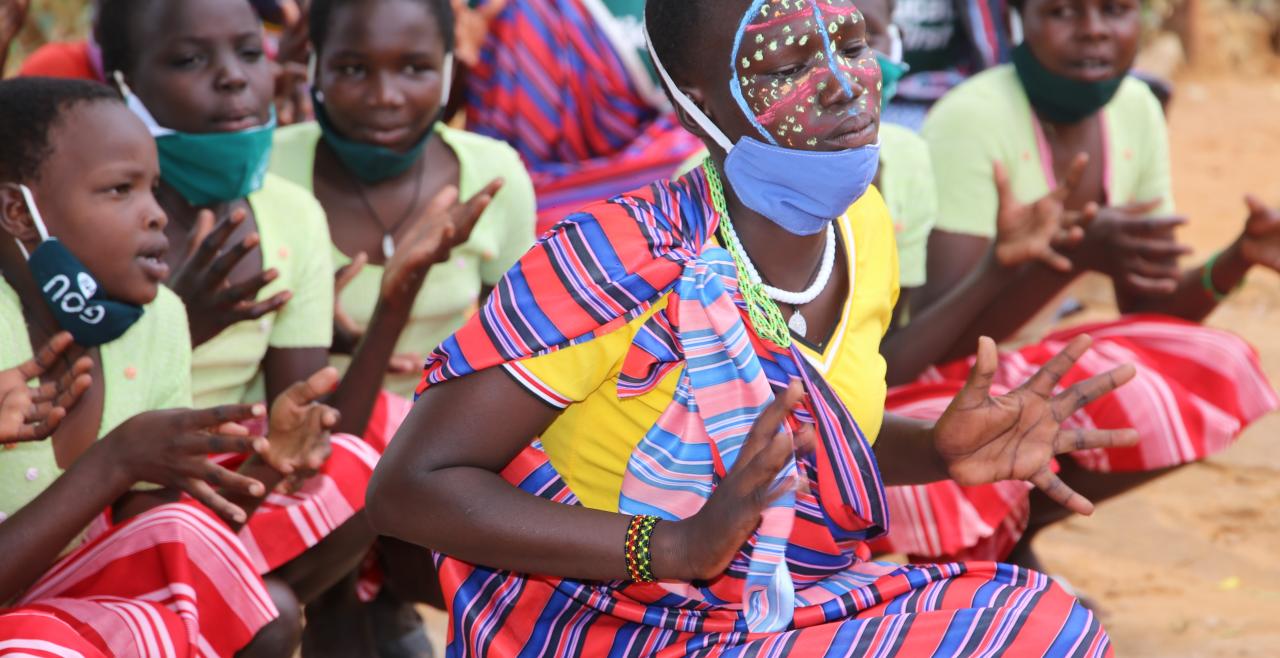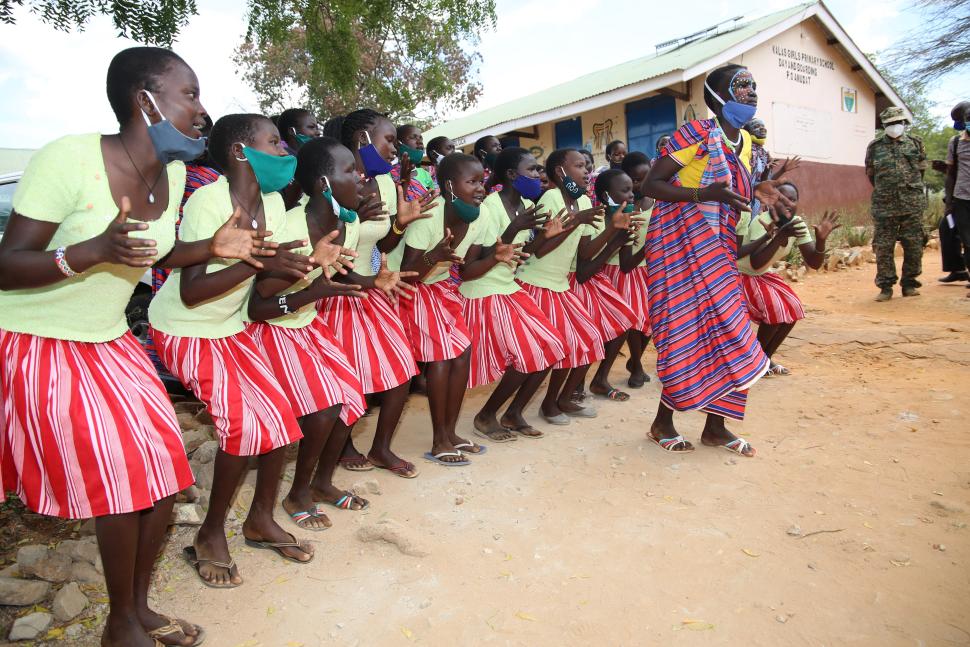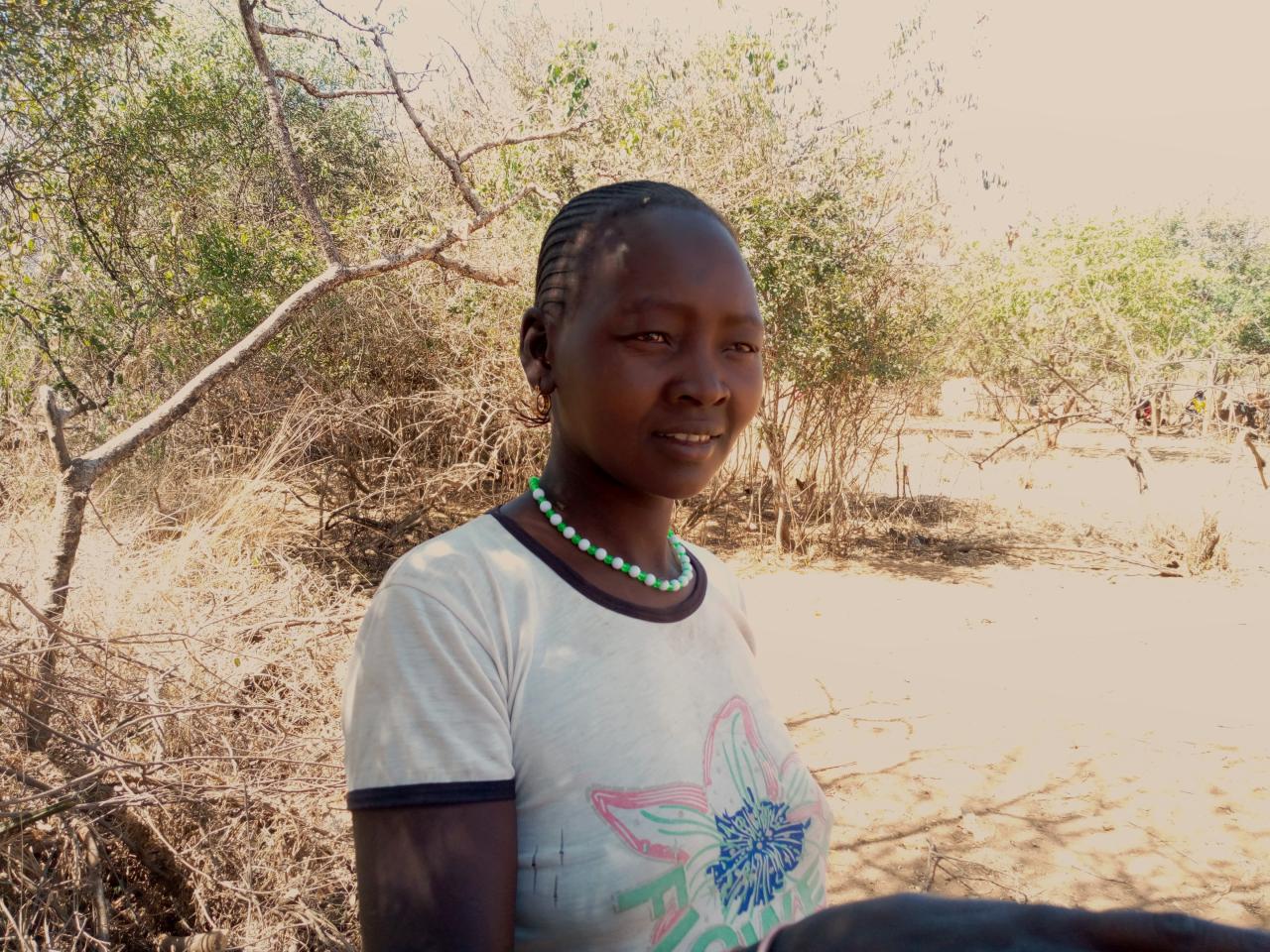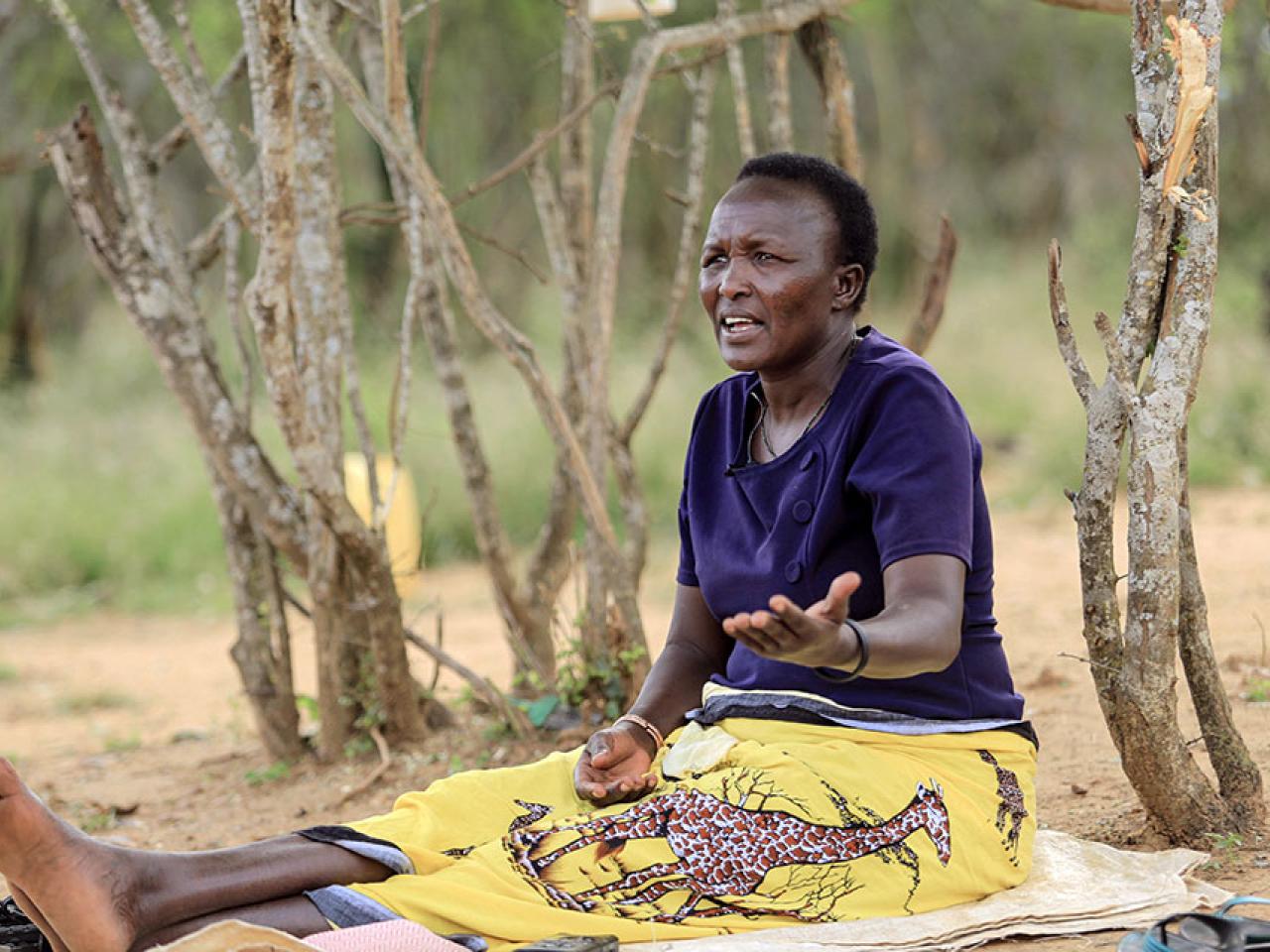Calls for tougher action to end FGM in Uganda

KARAMOJA/SEBEI, Uganda – Fourteen-year-old Judith* and five other Ugandan Pokot girls narrowly escaped forced female genital mutilation (FGM) and child marriage after being tricked into travelling to neighbouring Kenya during the COVID-19 pandemic.
The six girls from Namosing village in Loro sub-county, Northeast Amudat district, trekked barefoot for about 15 kilometers to Alale, Western Kenyan Pokot district in June 2020 – supposedly to visit a friend’s grandmother.
"She lied and tricked us. She told us we were going to visit her grandmother across the border in Kenya.” - Judith*, 14
“One of our friends hatched [the] plan. She lied and tricked us. She told us we were going to visit her grandmother across the border in Kenya,” said Judith, who is currently at Kalas Girls Primary school in Amudat, a safe haven for girls fleeing FGM or escaping child marriage.
“We stayed there for over a week. One day, we were taken to the gold mining site to work in order to get the money to pay the old woman (FGM practitioner). Luckily, someone tipped [us off] and leaked information to us that we had been brought to undergo FGM,” she said.
“Three of us escaped and went to the area local chief, who rescued us and took us to the Assistant County Commissioner. They rescued the other three girls. We were connected to the police in Amudat. We narrowly escaped FGM and child marriage.”
According to the ethnic Pokot tribe, once girls have been mutilated, they are deemed ready for marriage and taken out of school – a practice being combatted under Spotlight Initiative through UNFPA and UNICEF’s Joint Programme to End FGM and the Global Programme to End Child Marriage.
Since January 2021, six cases of FGM have been registered in Amudat, compared to 13 in 2020, according to a brief presented by Chief Administrative Officer Masokoyi Wassa during a high level visit led by the State Minister for Gender and Cultural Affairs, Hon. Peace Mutuuzo, on 14 September 2021. The delegation included 25 members of the Parliamentary Committee on Gender, Labour and Social Development.
Hon. Mutuuzo led a five-day field monitoring mission to FGM practising districts in Karamoja and Sebei regions to generate new evidence on the harmful practices in the context of COVID-19. The evidence from the visits will be presented on the floor of Parliament to advocate for more Government budgetary allocation to interventions to end FGM and child marriage.
The findings will also inform high level policy discussions taking place in the capital, Kampala, and Uganda’s country progress report on FGM elimination at the Regional FGM Inter-Ministerial meeting.
"Luckily, someone tipped [us off] and leaked information to us that we had been brought to undergo FGM.” - Judith
“We found out that there are increasing cases of FGM, forced child marriage and teenage pregnancies during the COVID-19 pandemic. When we outlawed FGM, the practice didn’t stop. It went underground,” said Hon. Mutuuzo, whose delegation also visited existing gender-based violence (GBV) shelters in Moroto, Kween and Tororo districts to gain comprehensive knowledge of the service package provided to survivors.
Hon. Flavia Kabahenda Rwabuhoro, chairperson of the Parliamentary Committee on Gender, Labour and Social Development recommended a review of all existing policies and legal frameworks to decisively tackle GBV.
“A number of policy documents and legal frameworks (GBV, FGM, and Child Acts) will be reviewed to address existing gaps so that we can come up with a complete plan and programmes to tackle GBV cases,” said Hon. Kabahenda.
“We need to do a lot of sensitization on mindset change and we are starting it now. We are going to advocate for school establishment and vocational studies in those areas where FGM is still being practised. We are going to factor in GBV/FGM into our budgets, institutions operations and structures,” Hon. Mutuuzo said.
*Name changed to protect privacy.



